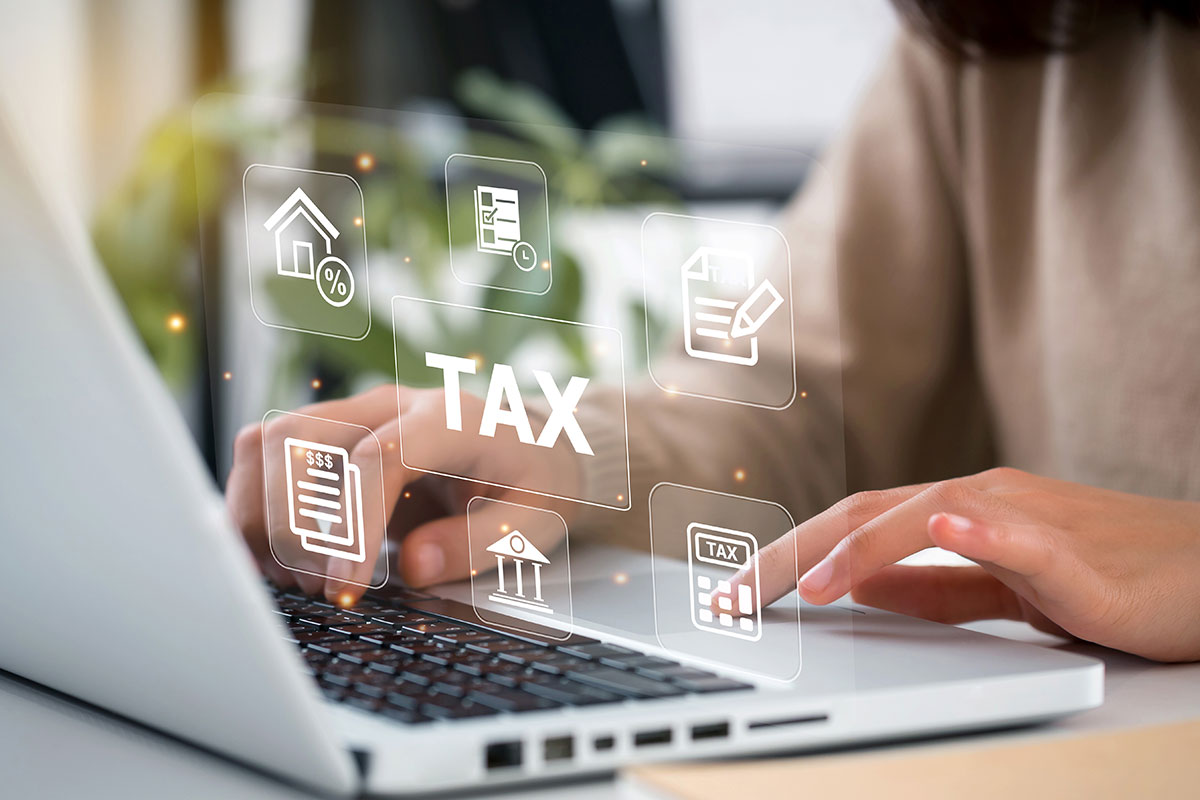TAX RISES ARE COMING
FIVE WAYS TO BEAT TAX HIKES
17
MARCH, 2023
A whole host of tax rises and cuts to allowances will soon be upon us. Income tax bills are to rise as the bands for basic and higher rate were frozen in the Autumn Statement by Chancellor Jeremy Hunt.
The policy of not increasing allowances in line with the cost of living, (or fiscal drag as it is known), forces millions of earners to pay more tax as earnings rise.
Some higher earners will also pay more tax because the threshold at which the 45% additional rate kicks in is being reduced to £125,140 from the current £150,000 from April 6th.
Individuals who receive an income from dividends will also pay more tax – or start paying tax where they haven’t before.
Currently you can receive £2,000 in dividends, tax-free. From April 6th the tax-free allowance is dropping to £1,000 and then £500 in April 2024.
Basic, higher and additional-rate taxpayers pay 8.75%, 33.75% and 39.35% tax respectively on amounts higher than the tax-free limit.
That’s not all. Soon the amount of capital gains tax due when selling an asset will rise.
That’s because while today you can receive up to £12,300 profit from the sale of an asset without paying any tax, from April 6th the allowance will be halved to £6,000 – and again to £3,000 from April 2024.

Here are five things you can do before the end of the tax year to ensure you’re being as tax efficient as you can.
1. Use your ISA allowance
You can shelter up to £20,000 in an ISA where investments are exempt from income tax and capital gains tax –any dividends are tax-free too.
Your ISA allowance is renewed every year on April 6th. But if you don’t use it (by April 5th), you lose it.
By taking full advantage you could grow a healthy savings pot worth hundreds of thousands of pounds – you might even join the elite gang of ISA millionaires.
It’s always been a smart move to utilise tax breaks offered by ISAs, but the shelter of an ISA used to invest in stocks and shares (instead of a cash version) will soon be even more valuable as tax bills on investment income and gains rise.
2. Do a Bed and ISA
Moving certain investments inside an ISA could save you money on dividend taxes. You’ll sell existing dividend generating shares, or funds, and then rebuy them within an ISA before the end of the tax year. Income from dividends paid via an ISA are tax-free.
Moving investments into an ISA would also be beneficial for those facing hefty capital gains tax bills when they cash in their investments.
Don’t leave a Bed and ISA application until the last minute as it can take time to organise the transactions.

3. Top up your pension
Paying into a pension is extremely tax efficient as you get tax relief on contributions.
Taxpayers get 20% paid by HMRC to their pension and if you pay income tax at a higher or additional rate you can claim relief on your self-assessment tax return at either 40% or 45%.
Since money invested in your pension grows free of capital gains tax and income tax your savings can grow much faster.
Pensions offer the unique benefit of being able to backdate unused allowances up to three years.
If you’re self-employed, paying into a pension will save on your self-assessment tax bill as a higher rate (or top rate) taxpayer.
Extra pension contributions are a consideration for those employed or self-employed who earn between £100,000 and £125,140 in the current tax year.
Personal allowances are tapered for those individuals which creates an effective income tax rate of 60%. If you can afford to do so, placing more into your pension will reduce your taxable income.

4. Gift money to loved ones
With the inheritance tax threshold of £325,000 frozen until 2028[1], more estates are falling into the IHT trap. Some £5.9 billion worth of inheritance taxes was collected by HMRC between April 2022 and January 2023 – £0.9 billion higher than the same period a year earlier[2].
One way to reduce the size of your estate is to give money away while you’re still alive.
The ‘annual exemption’ allows individuals to give financial gifts, tax-free, to the value of £3,000 each tax year. You can also give £250 to any number of people every year, though you can’t combine it with your annual £3,000 gift. You can also consider the “Potentially Exempt Transfer” which allows you to give away of all types of assets, including cash, property and shares tax-free, as long as you live for seven years after making the gift.
5. Invest for Children
Consider a Junior ISA for tax-free investing, where you can shelter £9,000 each tax year until they reach 18. There’s an investment ISA as well as a cash version.
You could even start a pension for under-18s. Tax rules allow up to £3,600 to be saved in a pension, such as a Junior SIPP for under 18s each tax year. A Junior SIPP allowance comes in addition to a Junior ISA allowance.
Taking advice on tax planning can help ensure you don’t end up paying more to HMRC than you need to.
HM Revenue and Customs practice and the law relating to taxation are complex and subject to individual circumstances and changes which cannot be foreseen.
PROVIDING NEWS AND VIEWS TO SUIT ALL NEEDS
This Blog is published and provided for informational purposes only. The information in the Blog constitutes the author’s own opinions. None of the information contained in the Blog constitutes a recommendation that any particular investment strategy is suitable for any specific person.
Tavistock Partners Limited is authorised and regulated by the Financial Conduct Authority. Tavistock Partners (UK) Limited is authorised and regulated by the Financial Conduct Authority. Tavistock Private Client Limited is authorised and regulated by the Financial Conduct Authority. The Tavistock Partnership Limited is authorised and regulated by the Financial Conduct Authority. Abacus Associates Financial Services is a trading style of Tavistock Partners (UK) Limited which is authorised and regulated by the Financial Conduct Authority. Duchy Independent Financial Advisers is a trading style of Tavistock Partners Limited which is authorised and regulated by the Financial Conduct Authority, All subsidiaries are wholly owned by Tavistock Investments Plc.

